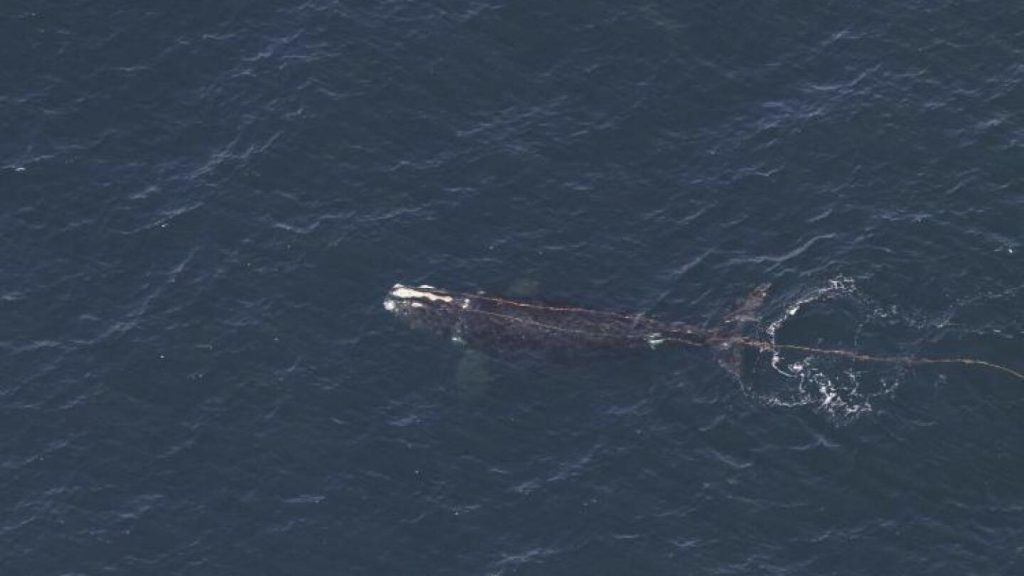A North Atlantic right whale has been spotted entangled in rope off New England, exacerbating an already devastating year for the endangered species. The right whale population numbers less than 360 and is at risk of entanglement in fishing gear and collisions with ships. The entangled whale was sighted about 50 miles south of Rhode Island’s Block Island. Efforts to rescue the whale have been hampered by its distance from shore, making it challenging for rescuers to intervene. NOAA Fisheries and their partners are closely monitoring the situation and will attempt a rescue when weather and safety conditions allow.
The year has been marked by several right whale deaths off the coasts of Georgia and Massachusetts, leading environmental groups to fear that the species may be on the brink of extinction. The population of these whales has declined by about 25% from 2010 to 2020, highlighting the urgency of protecting these majestic creatures. Scott Landry, the director of the Marine Animal Entanglement Response Program, has pledged that every effort will be made to free the entangled animal. However, rescues of this nature can be slow and require patience from the public as experts work diligently to ensure the safety and well-being of the whale.
Environmental groups have called for stricter regulations to prevent entanglement of whales in fishing gear, citing the death of a whale found off Martha’s Vineyard in January that showed evidence of injuries from entanglement. Despite these calls for action, a federal budget package passed in late 2022 included a six-year pause on new federal whale regulations, posing a challenge to conservation efforts. Gib Brogan, campaign director at Oceana, emphasized the need for stronger protections to prevent entanglements in U.S. waters, highlighting the ongoing threat faced by these vulnerable whales.
The North Atlantic right whales, once plentiful off the East Coast, were decimated during the commercial whaling era and have been slow to recover. Federally protected for decades, these whales migrate annually from calving grounds in Florida and Georgia to feeding grounds off New England and Canada. However, the changing climate and warming waters have disrupted their migration patterns, leading them to venture into areas where they are more susceptible to entanglements and collisions. Scientists have warned that the whales’ food sources are shifting, increasing the risks they face during their annual journey. Protecting these iconic creatures is essential to ensuring their survival for future generations.
The entanglement of a North Atlantic right whale off New England serves as a stark reminder of the threats facing these magnificent animals. The urgency of protecting them from entanglement in fishing gear and collisions with ships is evident, with conservation efforts playing a crucial role in their survival. The collaboration between NOAA Fisheries, environmental groups, and experts in marine animal rescue demonstrates a commitment to safeguarding the North Atlantic right whale population. As the world grapples with the challenges of climate change and conservation, the plight of these whales serves as a call to action for increased efforts to protect and preserve one of the ocean’s most iconic species.


